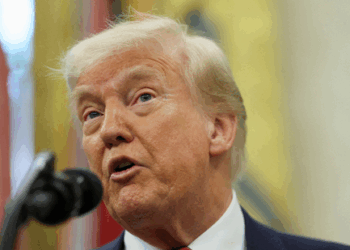A federal judge has dismissed the classified documents case against former President Donald Trump, declaring the appointment of Special Counsel Jack Smith “unconstitutional.” The decision has sent shockwaves through the legal and political spheres, raising significant questions about the future of related investigations.
Judge Timothy O’Brien, presiding over the case in the U.S. District Court, concluded that Special Counsel Smith’s appointment did not adhere to constitutional requirements, rendering his actions in the case invalid. “The appointment of Special Counsel Jack Smith lacked the necessary oversight and accountability required by the Constitution,” Judge O’Brien stated in his ruling on Monday. “As such, all proceedings and evidence gathered under his direction are hereby nullified.”
The case, which centred on the alleged mishandling and retention of classified documents by Trump after leaving office, has been closely watched due to its potential implications for national security and Trump’s political future. The dismissal halts all legal proceedings against Trump related to these documents, providing a significant legal victory for the former president.
Trump’s legal team welcomed the ruling, reiterating their long-standing claims of political bias and misconduct in the investigation. “This decision is a triumph for the rule of law and the Constitution. It affirms what we have been saying all along—that this was a politically motivated witch hunt,” said Trump’s attorney, John Dowd. “We are pleased that justice has prevailed and that President Trump has been exonerated.”
Special Counsel Smith, appointed to investigate various allegations against Trump, including obstruction of justice and other potential crimes, now faces an uncertain future. Legal experts are divided on the implications of the ruling, with some arguing it could jeopardize other ongoing investigations led by Smith.
“The ruling raises fundamental questions about the legitimacy of the Special Counsel’s office and could have a cascading effect on other cases under his purview,” said constitutional law professor Mary Whitaker. “This decision could set a precedent that may limit the scope and power of special counsels moving forward.”
Political reactions to the ruling have been swift and polarized. Democrats have expressed dismay, warning that the decision undermines efforts to hold powerful figures accountable. “This ruling is a setback for justice and accountability,” said House Speaker Nancy Pelosi. “It highlights the urgent need for clear and robust mechanisms to oversee and investigate misconduct at the highest levels.”
Republicans, on the other hand, have hailed the ruling as a vindication of Trump and a blow against what they perceive as partisan investigations. “Today’s decision is a victory for fairness and the rule of law,” said Senate Minority Leader Mitch McConnell. “It demonstrates that no one, not even a former president, should be subjected to unconstitutional scrutiny.”
The ruling is expected to be appealed, potentially bringing the case before the Supreme Court. Meanwhile, the Department of Justice has yet to comment on the next steps, leaving uncertainty over the broader impact on ongoing and future investigations related to Trump.
As the legal and political ramifications of Judge O’Brien’s decision continue to unfold, the case underscores the complex and contentious nature of efforts to investigate and prosecute high-profile political figures.








 India
India












